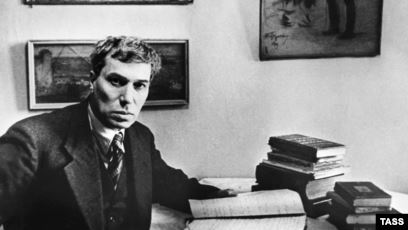Boris Pasternak’s life itself looks like a novel. There was persecution, a ban on publications, and an international scandal. Everyone knows about the loudest event – the forced refusal of the Nobel Prize – but we decided to collect some less known facts from the poet’s biography.
Due to his fall from a horse, he was not called to any of the world wars…
At the age of 13 Boris Pasternak decided to ride a skittish horse, but the animal threw a saddle. He broke a leg that didn’t fit together properly. The rest of his life the poet limped a little, but tried to hide it. “One evening, disembarking from two future wars, I lay motionless in a cast,” – he recalled in the “Security Diploma”.
For military service Pasternak became unsuitable, but during the Great Patriotic War was fully trained, and despite the fact that he lived in Peredelkin, went to guard the roof of a house in Lavrushinsky Lane from aircraft shells.
Tried not to change his conscience
The famous phrase “I didn’t hear it, you didn’t read it to me”, addressed to Mandelstam, was said for his own good, because it was for the poem “We live without feeling the country” that the poet was later arrested. However, Boris Pasternak was never afraid to admit that he was friends with the “enemies of the people. After the arrest of the essaywriter Boris Pilnyak Pasternak, his neighbor in Peredelkin, loudly announced to his wife that he was going “to the Pilnyaks, although between their sites was a gate, and they could go to visit each other, without attracting extra attention.
Survived the Great Fatherland with Shakespeare’s help
Back in the 30s translations became the main source of the poet’s income. At the beginning of the war Pasternak complained in letters to his wife that his articles were not suitable for magazines, during this period was written a cycle of four poems “On early trains”, published in 1943. In early 1942, was conceived play “That Light”, work on which ceased after the first act. Too direct and sincere for that era, it could not be staged in Soviet theaters under any circumstances. In this situation, the translations of Shakespeare and Goethe became not only a way to feed the family, but also a kind of escape from reality: famine, instability, the devastation that the war brought. Since the early 40’s Boris Pasternak worked on “Romeo and Juliet,” “Antony and Cleopatra,” “Faust,” “Hamlet” and other works.
Saw the title of the future work on a cast-iron slab
Olga Ivinskaya recalled that the name of the title character of “Doctor Zhivago” Pasternak invented when he “came across a round cast-iron slab with” autograph “Zhivago “. He decided that let it be so, unknown, came out of the wrong merchant or semi-intelligent environment – this man will be his literary hero.
Without wanting to, he became an assistant to the CIA…
The scandal surrounding “Doctor Zhivago” did have serious political implications. The U.S. Central Intelligence Agency organized the publication of the novel in the Netherlands and the UK (and then in the U.S. in pocket format) and the free distribution of books to Soviet tourists at the World Expo in Brussels in 1958 and at the Youth and Students Festival in Vienna in 1959. So the KGB had something to worry about. Today the novel seems to be absolutely harmless, but in the late 60’s it had high political stakes. Of course, all this does not reduce the role of “Doctor Zhivago” in the history of Russian literature.


 Share on bsky
Share on bsky





Read 0 comments and reply